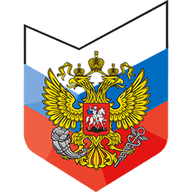The VPN Conundrum: A Tightrope Walk in Russia's Digital Landscape
December 27, 2024, 4:21 am

Location: United States, California, Cupertino
Employees: 10001+
Founded date: 1976
Total raised: $100M
In the vast digital expanse of Russia, the VPN debate simmers like a pot on the verge of boiling over. The government, wary of unregulated internet access, has been tightening its grip. Yet, the question remains: will users face penalties for using VPNs? Recent discussions among legal and IT experts suggest that while the idea of fines exists, the reality is more complex.
VPNs, or Virtual Private Networks, are tools that allow users to mask their online activities. They provide a cloak of anonymity, enabling access to blocked content. In Russia, where the internet is heavily regulated, VPNs have become a lifeline for many. However, the government’s stance on these services is a tightrope walk between control and necessity.
Recent statements from the State Duma indicate that the introduction of fines for VPN usage is not on the agenda. Officials argue that distinguishing between legal and illegal use of VPNs is akin to finding a needle in a haystack. Many users employ these services for legitimate reasons, such as enhancing cybersecurity. The government acknowledges this complexity, stating that the decision to use a VPN ultimately lies with the individual.
Yet, the looming shadow of Roskomnadzor, the federal executive body responsible for overseeing communications, hangs over the discussion. The agency has proposed new measures to collect data from internet service providers. This initiative aims to identify user equipment and track online behavior. While officials assert that this data collection is not intended to target VPN users, the implications are clear. The potential for surveillance raises concerns about privacy and freedom.
Experts warn that if these measures are implemented, they could pave the way for fines. The technology exists to monitor VPN usage, but the resources required to enforce such regulations are substantial. The legal framework is still in its infancy, and many believe that creating a system to penalize users would be fraught with challenges. The line between lawful and unlawful use of VPNs is blurred, making enforcement a daunting task.
Moreover, the landscape is shifting. In late December 2024, Apple confirmed the removal of VPN applications from the Russian App Store. This move aligns with the government's push for compliance with national laws. The tech giant's decision underscores the growing pressure on companies to adhere to local regulations, even at the cost of user access.
As the government continues to block VPN services that fail to comply with its demands, the digital divide widens. Some VPNs are allowed to operate, provided they connect to the state’s information system and filter content according to the official blacklist. This creates a paradox: while some users can access the global internet, others are left in the dark.
The narrative is further complicated by the financial implications. If fines for VPN usage were to be introduced, they would likely be minor but frequent. This could be seen as a toll for accessing the broader internet. Experts predict that such a system would not only target VPN users but also affect businesses that rely on secure communication channels. The need for a balanced approach to regulation is paramount.
In the face of these developments, the voices of dissent grow louder. Critics argue that any attempt to impose fines would be a direct attack on digital freedom. They emphasize the importance of protecting user privacy and the necessity of VPNs in an increasingly interconnected world. The call for a more nuanced approach to regulation resonates with many, as the digital landscape continues to evolve.
The government’s current position reflects a cautious approach. While there are no immediate plans to penalize VPN users, the potential for future restrictions looms large. The situation remains fluid, with ongoing discussions about the balance between security and freedom. As the digital landscape shifts, so too will the strategies employed by both users and regulators.
In conclusion, the VPN debate in Russia is a complex tapestry woven with threads of regulation, privacy, and freedom. The potential for fines exists, but the practicalities of enforcement remain uncertain. As the government navigates this intricate web, users are left to ponder their next move. The digital age demands vigilance, and in Russia, the stakes are higher than ever. The VPN conundrum is not just about technology; it’s about the very essence of freedom in the digital realm.
VPNs, or Virtual Private Networks, are tools that allow users to mask their online activities. They provide a cloak of anonymity, enabling access to blocked content. In Russia, where the internet is heavily regulated, VPNs have become a lifeline for many. However, the government’s stance on these services is a tightrope walk between control and necessity.
Recent statements from the State Duma indicate that the introduction of fines for VPN usage is not on the agenda. Officials argue that distinguishing between legal and illegal use of VPNs is akin to finding a needle in a haystack. Many users employ these services for legitimate reasons, such as enhancing cybersecurity. The government acknowledges this complexity, stating that the decision to use a VPN ultimately lies with the individual.
Yet, the looming shadow of Roskomnadzor, the federal executive body responsible for overseeing communications, hangs over the discussion. The agency has proposed new measures to collect data from internet service providers. This initiative aims to identify user equipment and track online behavior. While officials assert that this data collection is not intended to target VPN users, the implications are clear. The potential for surveillance raises concerns about privacy and freedom.
Experts warn that if these measures are implemented, they could pave the way for fines. The technology exists to monitor VPN usage, but the resources required to enforce such regulations are substantial. The legal framework is still in its infancy, and many believe that creating a system to penalize users would be fraught with challenges. The line between lawful and unlawful use of VPNs is blurred, making enforcement a daunting task.
Moreover, the landscape is shifting. In late December 2024, Apple confirmed the removal of VPN applications from the Russian App Store. This move aligns with the government's push for compliance with national laws. The tech giant's decision underscores the growing pressure on companies to adhere to local regulations, even at the cost of user access.
As the government continues to block VPN services that fail to comply with its demands, the digital divide widens. Some VPNs are allowed to operate, provided they connect to the state’s information system and filter content according to the official blacklist. This creates a paradox: while some users can access the global internet, others are left in the dark.
The narrative is further complicated by the financial implications. If fines for VPN usage were to be introduced, they would likely be minor but frequent. This could be seen as a toll for accessing the broader internet. Experts predict that such a system would not only target VPN users but also affect businesses that rely on secure communication channels. The need for a balanced approach to regulation is paramount.
In the face of these developments, the voices of dissent grow louder. Critics argue that any attempt to impose fines would be a direct attack on digital freedom. They emphasize the importance of protecting user privacy and the necessity of VPNs in an increasingly interconnected world. The call for a more nuanced approach to regulation resonates with many, as the digital landscape continues to evolve.
The government’s current position reflects a cautious approach. While there are no immediate plans to penalize VPN users, the potential for future restrictions looms large. The situation remains fluid, with ongoing discussions about the balance between security and freedom. As the digital landscape shifts, so too will the strategies employed by both users and regulators.
In conclusion, the VPN debate in Russia is a complex tapestry woven with threads of regulation, privacy, and freedom. The potential for fines exists, but the practicalities of enforcement remain uncertain. As the government navigates this intricate web, users are left to ponder their next move. The digital age demands vigilance, and in Russia, the stakes are higher than ever. The VPN conundrum is not just about technology; it’s about the very essence of freedom in the digital realm.


